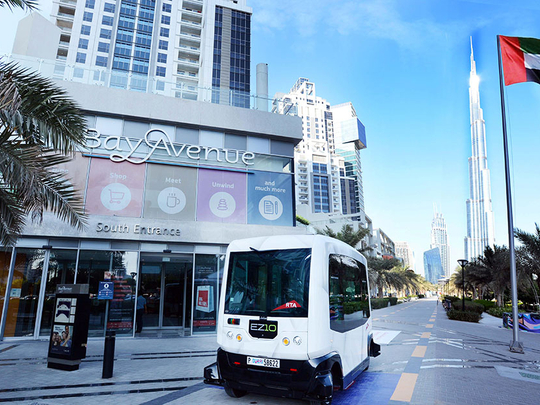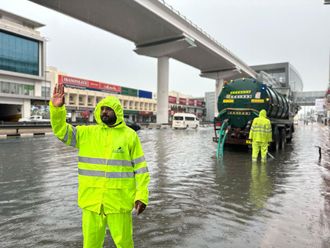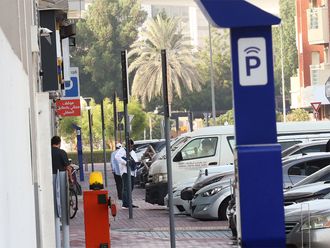
Dubai: Dubai’s declared goal of covering 25 per cent of the city’s trips through self-driving vehicles by 2030 got a major boost as the Roads and Transport Authority (RTA) launched a multi-pronged strategy in pursuit of the target.
On Saturday, the RTA announced that Mattar Al Tayer, its Director-General and Chairman of the Board of Executive Directors has approved RTA’s Self-driving Transport Strategy.
The strategy is aligned with Dubai’s Smart Transport Strategy launched by His Highness Shaikh Mohammad Bin Rashid Al Maktoum, Vice-President and Prime Minister of the UAE and Ruler of Dubai.
“RTA’s Self-driving Transport Strategy has several attributes that sets it apart from other strategies. First, the transition to self-driving in Dubai is powered by a government entity whereas it is the private sector that drives this transition in many other cities and countries. Secondly, Dubai’s strategy is inclusive of all mass transit modes such as trains, buses, marine transit modes and taxis, as well as private vehicles, while many countries focus on a limited number of transit modes,” said Al Tayer.
Among the elements of RTA’s strategy is a global contest between companies with significant expertise in smart transport that the authority will announces soon.
“To realise the objectives of this strategy, RTA is seeking to introduce an array of enablers that would be developed in a parallel manner. They include enacting legislations and rules for self-driving transport, enhancing public adaptability to this technology, developing conditions and regulations for testing and licensing of self-driving vehicles, chalking up a structure for insurance and liability, and addressing the requirements of infrastructure,” said Al Tayer.
Enablers will also include developing a structure for e-security along with a technology-driven communication system to ensure effective communication and interaction between vehicles.
Al Tayer added that high-definition e-maps would also be developed to avail the use of technologies and beat geographical and climatic conditions.
“The success of the Dubai Self-driving Transport Strategy rests on several drivers highlighted by the availability of comprehensive and accurate information and sharing them effectively. The recently opened Enterprise Command and Control Centre (EC3) would play a pivotal role in providing real-time and accurate information.”
As research and development (R&D) are key contributors to the success of any technology driven strategy, RTA has forged effective partnerships with renowned global entities and varsities, and entered in consortia with global universities and research centres for commissioning research in self-driving transport capable of addressing futuristic requirements.
“This strategy is part of Dubai Government’s ongoing efforts to improve services and introduce the latest in technology and innovation worldwide in the field of self-driving transport for the sake of making people happy,” he said.
Al Tayer added that RTA’s Smart Transport Strategy will assist in planning journeys to multiple destinations using gadgets and smartphones.
“Self-driving initiatives will play an instrumental role in reducing mobility costs, improving traffic safety, and curbing pollution by cutting carbon emissions. They also raise productivity per capita, ease parking congestion, and achieve the integration with Dubai driverless metro, which is characterised by high level of punctuality and cost-effective operation,” said Al Tayer.
According to Al Tayer, RTA has already reaped some of the benefits associated with the self-driving transport through the driverless Dubai Metro.
“When compared to traditional rail systems, the Dubai Metro’s compliance with journey timetables is higher by 6.4 per cent, and runs at an operational cost lower by 7 per cent,” said Al Tayer.











